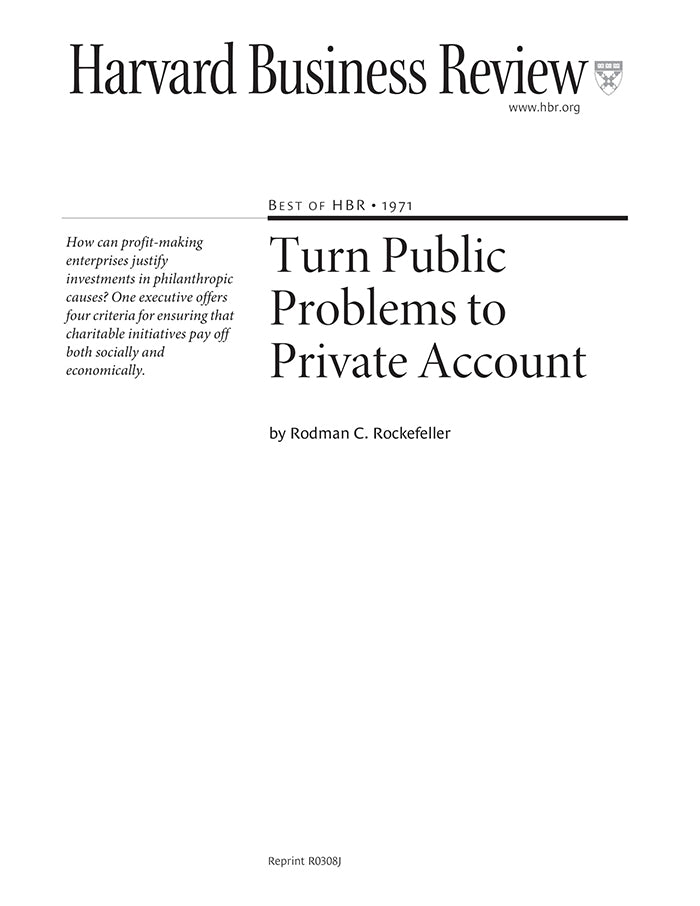Turn Public Problems to Private Account (HBR Classic)
受取状況を読み込めませんでした
Many managers face increasing calls to invest corporate resources in charitable causes. How should executives balance a firm's very real economic imperative to maximize profitability with its hypothetical moral imperative to improve society? To provide one answer, the author draws on his experience as president of an economic-development company, IBEC. Viewing profit as "an essential discipline and measurer of economic success" but not "the sole corporate goal," the company actively invested in social programs that met four criteria: They served a need of the local population; they required innovative approaches; they made sense on economic grounds; and they respected the social norms of the community. Such civic-minded efforts, the author argues in this prescient 1971 HBR article, not only improve people's lives but also create the foundation for more affluent and dynamic markets--markets that ultimately produce greater profits for business. For example, one of IBEC's earliest ventures was directed toward solving Venezuela's problems in retail food marketing. Many important items were unavailable at the small stores where people shopped. So in 1949, working with local partners, IBEC opened a supermarket. Supermarkets soon changed the food-buying habits of the nation, and the initiative helped alter patterns of food distribution and created the reliable demand needed to establish a host of local suppliers. Return on IBEC's investment, and that of its local partners, was most satisfactory, the author reports. The road to meeting a public need--especially a major one--is rarely easy, the author says. But if management sizes up the need well, there is a good chance its new venture will survive under adversity.
【書誌情報】
ページ数:12ページ
サイズ:A4
商品番号:HBSP-R0308J
発行日:2003/8/1
登録日:2012/3/28


